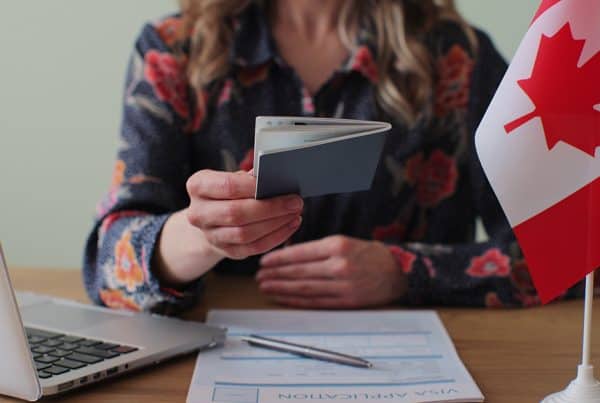Earlier in the year the breakout of the novel coronavirus disease compelled governments all across the world to shut their borders to restrict the influx of tourists or visitors from other countries and contain the spread of the virus. Understanding the gravity of the situation, Canada too restricted the entry of visitors traveling to the country for non-essential purposes.
Essential Workers Allowed to Enter Canada from the US
The Canadian government is still allowing certain essential service providers, businessmen and traders carrying valid work permits and visas to enter into the country for professional pursuits. The Canada Border Services Agency has been functioning ceaselessly to ensure the availability of essential goods for the general public and to cause Canadian importers minimal distress. Certain occupations have been deemed critical by the IRCC, and individuals engaged in these professionals have been exempted from the 14-day quarantine period. Workers who are exempt from the 14-day quarantine period include critical healthcare providers, essential goods transporters, medical-maintenance workers, and emergency service providers.
Even under the difficult environment created by the coronavirus pandemic, professional opportunities in Canada haven’t hit a dead end, rather the labour market has just undergone a paradigm shift. Although the work from home model has been implemented in several fields; sectors such as healthcare and logistics are still actively recruiting to cater to the increasing on-site demands. If you are a temporary worker who seeks to gain entry into Canada then you must have a valid work permit or at the very least procure a work permit approval letter.
How to Enter Canada from the US during COVID-19
If you wish to enter Canada through the US border by road, then you must satisfy the Canada Border Service Agency Officials that you do not exhibit any symptoms of COVID-19, are traveling for non-discretionary purposes, and have a comprehensive 14-day quarantine plan. Even critical workers such as healthcare providers must self-isolate and self-monitor outside their working hours.
Schedule a consultation with an immigration professional and take the uncertainty out of your crossing into Canada.
Speak to a licensed immigration lawyer in Toronto
Process for Entering Canada from the US
US citizens and permanent residents must carry at least one proof of citizenship document; whether its your birth certificate, citizenship certificate or your Permanent Resident Card. Foreign nationals trying to enter Canada would also need to furnish a valid visa to the Border Service Official.
Upon your arrival at the ‘Primary Inspection’ checkpoint at the border, the border officials will ask you for the aforementioned forms of identification and they might also ask you a series of questions about the goods you are carrying in your vehicle. You could also be asked to tell them the full amount (in Canadian dollars) of the food, animal or plant-related products in your possession. If you are carrying more than $10,000 CAD in tangible currency or via cheque, you will have to inform the Border Services Official about the same.
Why may you be Denied Entry Across the Canada Border
We’d suggest you remain as honest as possible with the border services officials since if they deem your answers to be unsatisfactory, they might deny you entry into Canada and ask you to return from the border itself. For you convenience, you can access a ‘Border Wait Time’ list online beforehand, to identify the border checkpoints wherein you’ll have to wait the least.
It may so happen that during your ‘Primary Inspection’, the border services official might ask you to move on to another point for a ‘Secondary Inspection’. Generally, secondary inspections are conducted to check and verify the electronic and digital devices in your possession. To ensure the safety of your sensitive information and privacy the border officials are prohibited from accessing your banking apps or your social media apps. The border service official might also ask you further questions regarding your trip to Canada or verify your documents. You shouldn’t worry about this as it is a part of their routine protocol.
Coming to Canada for Business Reasons
Traders or drivers of carrier vehicles who wish to bypass the Primary Inspection Line can opt for electronic notices; through which businesses can interchange data to save the hassle of filling up tons of paperwork. The CBSA also offers online stamping service, known as the ‘Electronic Longroom’, which allows commercial cargo carriers to skip the step of submitting paperwork at a designated CBSA office and instead submit it online in the convenient PDF file format.
The CBSA has also designed a comprehensive plan for the post-COVID era which would benefit importers in particular; who will be able to avail benefits such as a state-of-the-art importing interface, self-service access to information and even reduce the cost of importing into the country.
It is important to note that there are certain goods which are either restricted or prohibited in Canada, so you must declare these goods at the border service checkpoint, to avoid further questioning or potentially being denied entry. For instance, if you’re attempting to bring a non-restricted firearm into Canada from the US, you must furnish the valid licenses and documentation. We’d advise you to check out the firearms specifications beforehand as Canadian residents or visitors to Canada cannot import prohibited or illegal firearms into the country, under any condition.
Speak to an Immigration Professional
It is advisable to seek opinion of an experienced immigration lawyer who can help you avoid any potential roadblocks or awkward encounters with CBSA officials and ensure that you can seamlessly cross into Canada.
Whether you are planning to come to Canada to visit loved ones or want to enter the country for work, get in touch with us. We will tell you if you are eligible to travel to Canada for personal/professional purposes during the COVID-19 pandemic.





